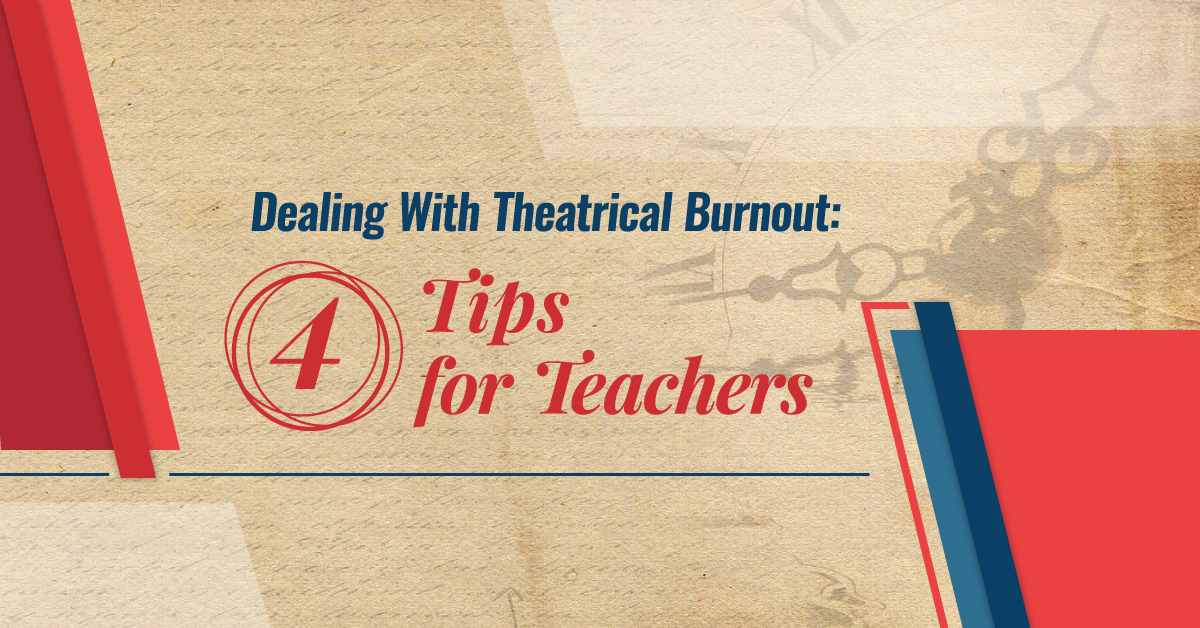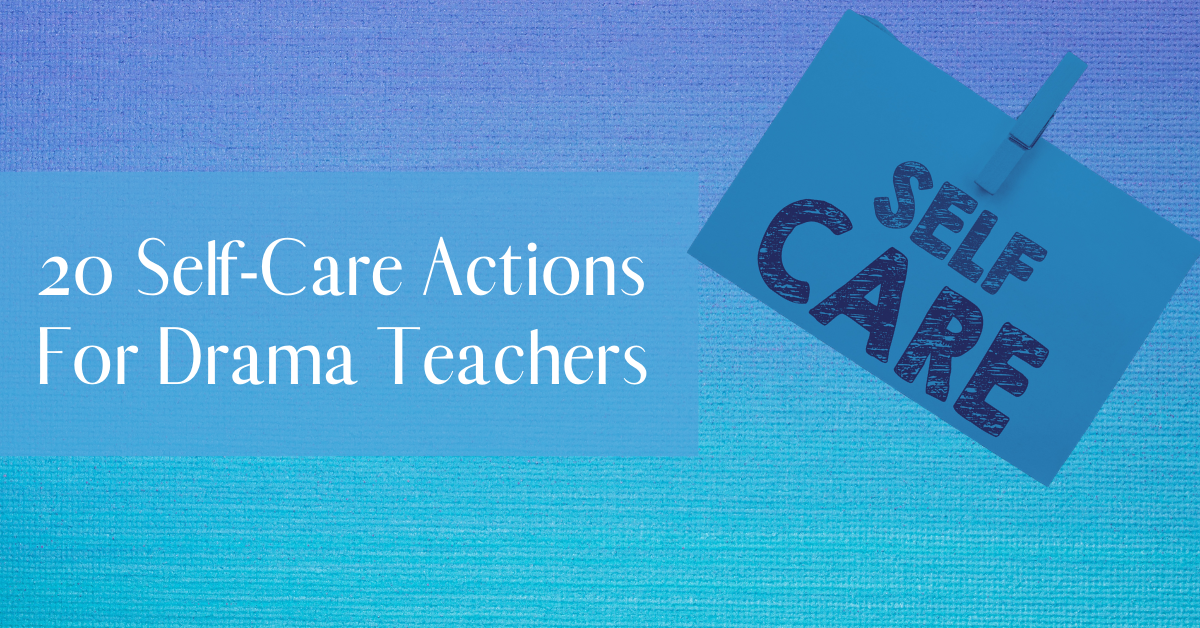Dealing With Theatrical Burnout: 4 Tips for Teachers
As theatre educators and do-it-all directors, we frequently feel the tell-tale signs of burnout. There is so much that must be done – lesson planning and preparation, marking, staff meetings, administrative updates, professional development days, classroom management. And then there are also the feelings that arise while working on a production: the “I can’t, I have rehearsal” replies to invitations, the frequent coffee refills, the never-ending to-do list, the growing piles of laundry and dishes at home, the “I just have one little question” statement that turns into many questions – it’s enough to drive a teacher mad. Sometimes it feels like there are not enough hours in the day to get everything done.
If you feel like you are headed towards burnout (or are already in the throes of it), read the following four tips. And know that you aren’t alone – check out the Theatrefolk Facebook page to chat with a community full of teachers who will know just how you are feeling right now.
1. Stop. Assess. Prioritize.
Look over your to-do list and make some decisions. What is the most important thing you need to get done today? This week? This month? What tasks can be put on hold? What could be delegated to someone else?
Use your planner and schedule your day accordingly. Be sure to account for “extra” time requirements outside of regular class time or rehearsals, such as travel time and preparation (for example, the time spent pre-planning your blocking or choreographing a dance).
At the end of the day, look back and compare how you actually spent your time with the schedule you set. Be honest with yourself about how you used your time. Did you procrastinate on a task you really don’t want to do? Have you been scrolling through Facebook and Twitter when you were supposed to be working on your props list? Did you get sidetracked looking through old cast photos?
2. Delegate.
This is a difficult one for those of us who think it’s easier to simply “do it ourselves” – but trying to do everything without assistance is the quickest road to burnout. Reach out and ask for help. Delegate tasks to others. When you’re working on a show, look for student assistants, parent/community volunteers, other classes, and colleagues to help out. This way you can free up your time for tasks that only you can do. Also, you are providing wonderful learning and leadership opportunities for others.
For your actual drama classes, why not reach out and collaborate with other drama teachers in your school district for different lessons and materials. They might have an interesting or unique approach to a unit that you hadn’t thought of. Looking for resources, right now? Why not check out our Drama Teacher Academy! DTA is full of individual lesson plans, units, curriculum, and more.
3. Set boundaries.
If you are glued to your phone and have a 24/7 open-access policy, you are going to eventually start to feel smothered and resentful. Set teaching drama office hours and stick to them. Further to that, don’t answer emails or texts after a certain time. Put your phone away and close your laptop. Students and parents may inadvertently be taking advantage of you if you are always available, and you will start to feel like you are constantly on call.
You should also sit down and reflect upon how many projects you take on during the school year. Honestly determine how many projects you can take on without making yourself ill. If you can’t do the annual haunted Halloween event plus a fall play plus the February coffeehouse fundraiser plus a spring musical (plus, plus, plus…) then SAY NO and stick to it! You are only one person and there are only so many hours in the day. It is also good and healthy for your students to see you modeling positive boundary behaviours.
4. Take care of your health.
If you constantly push yourself to the limit, you will get sick. If you get sick, you will be no good to anyone – let alone yourself. The standard rules apply here: eat healthfully, bring snacks so you don’t get hangry, drink lots of water throughout the day, exercise as often as you can, get outside and breathe some fresh air, and get adequate sleep.
And don’t forget to focus on your mental health. If you are frequently stressed out and anxious, those feelings will trickle down to your students. And that does not create a very positive learning environment. Take advantage of any mental health services that are available to you, reach out to colleagues to chat (and/or vent), and try to carve out a little bit of time that is not theatre-related. Read a book, go to a movie or concert, or take a class. Spend time with family and friends who don’t do theatre. Remember, there is a whole world out there beyond the auditorium, and the drama classroom will be waiting patiently for you when you’re ready to come back.



